But many people don’t get enough vitamin D3. Find out the best ways to get what you need and whether a supplement might be a good idea for you.
Superior Bone Health Formula
- 4000 i.u of Vitamin D3!
- Vitamin K2 at 240%
- Liposomal Calcium & Magnesium
- Soy Isoflavones
Η εξαιρετικά ισχυρή νέα μας φόρμουλα θα σας προσφέρει όλα όσα χρειάζεστε για γερά υγιή οστά.
Μια τεράστια δόση 4000 i.u βιταμίνης D3 μαζί με 180 mcg K2 (συγκέντρωση κορυφαίας αγοράς), Isoflavones σόγιας , αρκετές έρευνες δείχνουν το πόσο ευεργετικές είναι για τον σχηματισμό των οστών και τα θαυματουργά συστατικά Lipocal™ και MagShape™.
Μια all-in-one εξαιρετικά ισχυρή φόρμουλα για την υγεία και τη θρέψη των οστών με συστατικά φαρμακευτικής ποιότητας, με βέλτιστη απορρόφηση και υψηλή ισχύ.
Our super strong new formula will provide you all you need for strong healthy bones.
A massive 4000 i.u vitamin D3 dosage together with 180mcg of K2 (market leading concentration), Soy Isoflavones with several research on how beneficial they are for the bone formation, and the miracle ingredients Lipocal™ and MagShape™.
An all-in-one super strong bone health & bone nourishing formula with pharmaceutical grade ingredients, with optimum absorption and high potency.
Soy Isoflavones
Isoflavones play a role in calcium homeostasis during the calcium uptake process by mobilizing bone calcium into the circulation. Isoflavones and equol increase bone mineral density in the gastrointestinal tract by stimulating bone formation.
They can act as an antiresorptive and bone-sparing agent in preventing osteoporosis.
Also, many research meta analysis support that soy isoflavones are effective in slowing down bone loss after menopause.
Lipocal™ – A highly bioavailable source of calcium of non-animal origin
Cognitive, muscle, and bone health
Lipocal is a microencaspulated mineral and water-dispersible micronised source of calcium. It is from non-animal origin and suitable for vegetarians
The effect of calcium deficiency on health
Calcium is an essential mineral for the normal growth and maturation of human beings, in addition to maintaining overall homeostasis [3]. Calcium is found in two forms in the organism:
- The storage form (99% of the body’s calcium). Inside the bones, calcium is stored in the form of hydroxyapatite [Ca3(PO4)2(OH)2] where it contributes directly to skeletal strength and flexibility [3].
- The circulating form (1%). Calcium is contained in blood, muscles and other tissues, where it contributes to many vital functions [2].
When calcium intakes are insufficient to maintain the level of circulating calcium, the body mobilizes bone structure [2]. This results in increased bone resorption leading to osteomalacia (decalcification of the skeleton) and then, at a more advanced stage, to osteoporosis [1;4]. Low calcium intakes are also associated with an increased risk of colorectal cancer, hypertension in adults and abnormal growth in children [1].
Thus, calcium deficiencies mainly affect bone health (osteoporosis, slowed growth) but are also involved in the development of related pathologies.
Importance of calcium in children and adolescents
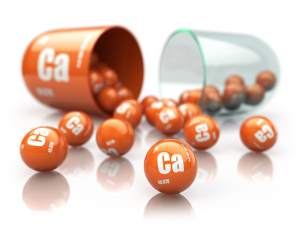
The mineral calcium helps your muscles, nerves, and cells work normally.
Your body also needs calcium to make healthy bones. Bones are the main storage site of calcium in the body.
Your body cannot make calcium. The body only gets the calcium it needs through the food you eat, or from supplements. If you do not get enough calcium in your diet, or if your body does not absorb enough calcium, your bones can get weak or will not grow properly.
Your skeleton (bones) are a living organ. Bones are constantly being remodelled with old bone being resorbed and new bone being formed. It takes about 10 years for all the bone in your body to be renewed. That is why paying attention to bone health is important in adults and not just in growing children.
Bone density refers to how much calcium and other minerals are present in a section of your bone. Bone density is highest between ages 25 and 35. It goes down as you get older. This can result in brittle, fragile bones that can break easily, even without a fall or other injury.
The digestive system is normally very bad at absorbing calcium. Most people absorb only 15% to 20% of the calcium they eat in their diet. Vitamin D3 is the hormone that helps the gut absorb more calcium.
Many older adults have common risks that make bone health worse. Calcium intake in the diet (milk, cheese, yogurt) is low. Vitamin D3 levels are low and gut calcium absorption is low. In many adults, hormonal signals have to take some calcium out of the bones every day to keep blood calcium levels normal. This contributes to bone loss.
Because of this, as you age, your body still needs calcium to keep your bones dense and strong. Most experts recommend at least 1,200 milligrams of calcium and 800 to 1,000 international units of vitamin D3 a day. Your health care provider may recommend a supplement to give you the calcium and vitamin D3 you need.
Some groups recommend much higher doses of vitamin D3, but many experts feel that high doses of vitamin D3 are not safe for everyone. Be sure to discuss with your provider whether supplements are a good choice for you.
Follow a diet that provides the proper amount of calcium, vitamin D3, and protein. These nutrients will not completely stop bone loss, but they will help ensure that your body has the materials it needs to build bones. Remaining fit and active can also protect bones and keep them stronger.
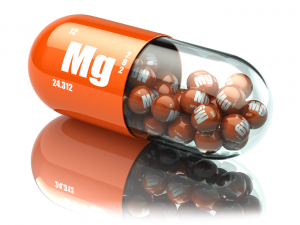
Overall, magnesium assures the strength and firmness of bones and makes teeth harder. Since magnesium participates in an astonishing array of biochemical reactions, it’s no surprise that it’s essential for healthy bones and teeth. Most notably, adequate magnesium is essential for absorption and metabolism of calcium.
Magnesium also has a role to play, together with the thyroid and parathyroid glands, in supporting bone health: stimulating the thyroid’s production of calcitonin, which acts as a bone-preserving hormone, and regulating parathyroid hormone, a function of which is to regulate bone breakdown in a number of ways.
Magnesium is an essential cofactor in 80% of all cellular enzymes. It is necessary for the conversion of vitamin D into its active form, and a deficiency of magnesium can lead to a syndrome known as vitamin D resistance. The enzyme that is required for forming new calcium crystals, alkaline phosphatase, also requires magnesium for activation, and if levels are low, abnormal bone crystal formation can result. Even mild magnesium deficiency is reported to be a leading risk factor for osteoporosis.
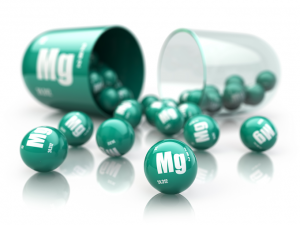
As with calcium, the majority of the body’s reserves of magnesium are held in the bone (60%), and the bones act as a storage reservoir, transferring magnesium into the blood stream in times of need. Adequate daily intake of magnesium is important throughout life to keep the magnesium that is stored in the bones from being lost. Low magnesium intake, as well as low blood and bone magnesium levels, has been widely associated with osteoporosis in women.
It’s often overlooked that magnesium and calcium function together, so deficiency of one markedly affects the metabolism of the other. In fact, increasing calcium supplementation without increasing magnesium supplementation can actually increase magnesium loss. Similarly, the use of calcium supplements in the face of a magnesium deficiency can lead to calcium deposition in the soft tissues, such as the joints, where it can promote arthritis, or in the kidney, contributing to kidney stones.
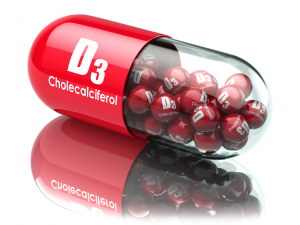
Calcium and vitamin D work together to protect your bones—calcium helps build and maintain bones, while vitamin D helps your body effectively absorb calcium. So even if you’re taking in enough calcium, it could be going to waste if you’re deficient in vitamin D.
Vitamin D helps your body absorb calcium. Sunlight is actually the main source of vitamin D for many people. However, staying in the sun without proper skin protection puts you at risk for skin cancer. If you’re worried about this risk, or live in a northern climate where sun exposure isn’t a year-long guarantee, many foods will provide you with your daily intake of vitamin D.
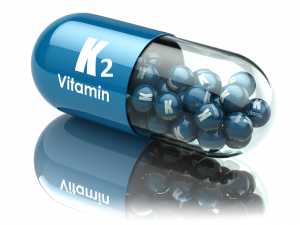
Most people have never heard of vitamin K2.
This vitamin is rare in the Western diet and hasn’t received much mainstream attention.
However, this powerful nutrient plays an essential role in many aspects of your health.
In fact, vitamin K2 may be the missing link between diet and several chronic diseases.
Vitamin K, a fat-soluble vitamin is essential for many processes in the body, including the maintenance of the skeleton. Vitamin K2 appears to be the most important form of vitamin K for bone health.
Recently, there has been talk about vitamin K2 and its relationship with bone health, with many studies investigating how vitamin K2 supplements may improve bone health by reducing bone loss and improving bone strength.
A new study published in Osteoporosis International aimed to explore this relationship by focusing on postmenopausal women and whether vitamin K2 supplements could beneficially affect bone health. The study recruited 244 women aged between 55-65 years and randomly assigned them to receive either a placebo or the K2 supplement over a three year period. The study found that women who received the K2 supplement had reduced decline in bone mineral density and bone strength.
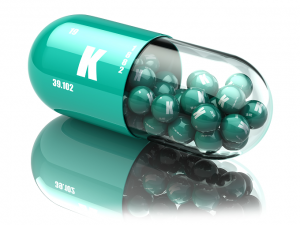
Potassium citrate supplementation results in sustained improvement in calcium balance in older men and women
Potassium plays a vital role in maintaining bone health. Certain potassium salts neutralise the acids produced during the body’s metabolic processes
Osteoporosis, a disease in which the bones become weak and are more likely to break, is a major health problem in the United States. Too much acid in the body appears to be linked to loss of calcium via urine, bone loss, and muscle breakdown. The purpose of this study is to determine the effect of various doses of potassium citrate, a supplement that can neutralize acid, on bone density and muscle mass in older, healthy adults.
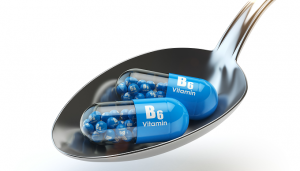
Vitamin B6 is another nutrient that plays an important but indirect role in bone metabolism. Here are a few aspects of the work it does for us:
- B6 is necessary for hydrochloric acid (HCl) production by the stomach, and HCl in turn is necessary for calcium absorption.
- B6 is necessary for adrenal functioning. In turn, several dozen hormones are produced by the adrenal glands, several of which aid in maintaining proper mineral balance within the body.
- B6 is also a necessary co-factor in the enzymatic cross-linking of collagen strands, which increase the strength of connective tissue.
- B6 is a factor in the breakdown of homocysteine, which tends to increase in postmenopausal women. Homocysteine is a metabolite of the amino acid methionine, which interferes with collagen cross-linking and leads to defective bone matrix and osteoporosis. It also contributes to the development of heart disease. B6, along with folic acid, helps prevent build-up of homocysteine in the body.
- All in all, more than 50 enzyme systems are directly dependent on vitamin B6, and many others function suboptimally without a sufficient amount of this nutrient.
Studies indicate that inadequate vitamin B6 intake is widespread among all population groups. In one study, all of 21 “normal American students” studied over a two–week period were found to be functionally deficient in B6.
One of the factors contributing to this problem is the relative instability of vitamin B6, which is destroyed by light and heat. As a result, much of it is lost in food processing, storage, and preparation. In addition, higher animal protein intake creates an increased demand for B6, as do other common B6 antagonists such as yellow dye #5 (food coloring), oral contraceptives, and certain other drugs and alcohol.
| Ingredient | 3 capsules | %NRV* |
| Lipocal™ Liposomal Microencapsulated Calcium
Of which Calcium |
1800 mg
660 mg |
82,5% |
| Magshape™ Liposomal Microencapsulated Magnesium
Of which Magnesium |
600 mg
200 mg |
53,3% |
| Vitamin K2 (as Menaquinone) | 180 µg | 240% |
| Vitamin D3 (as Cholecalciferol) | 100 µg (4000 i.u) | 2000% |
| Soy Isoflavones 40% | 60 mg |
*NRV Nutrient Reference Value
Suggested Use:
Consume 1 vegan capsule with 3 meals daily





 0
0







